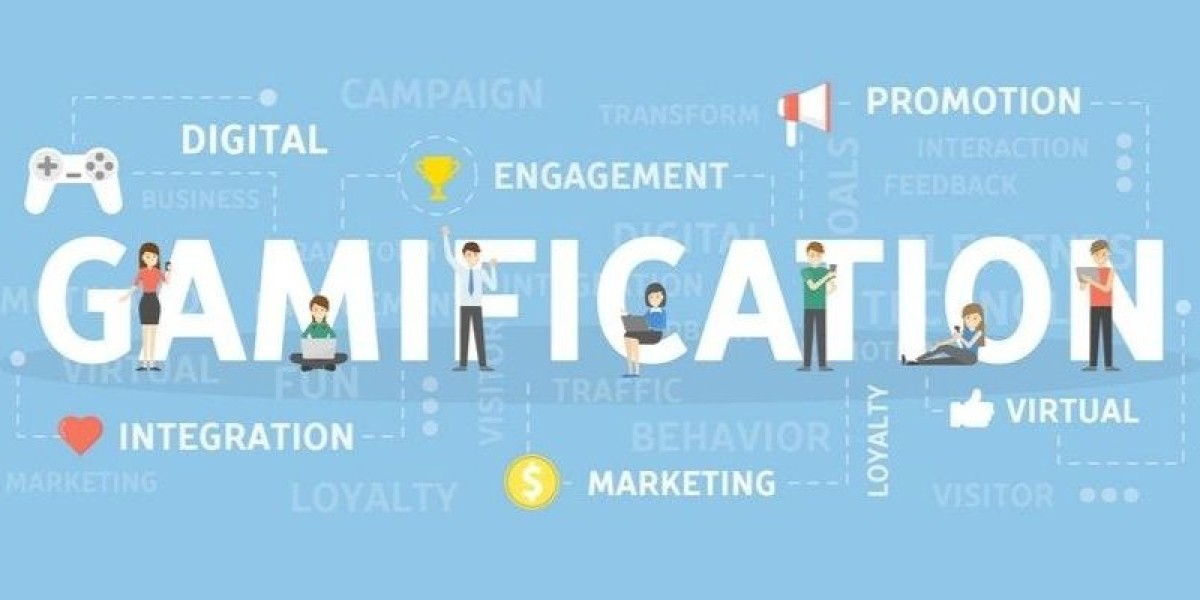Gamification has become a buzzword in various industries, and its influence is rapidly extending into social media marketing. Social media marketing agency are leveraging gamification to engage audiences, boost brand loyalty, and drive user interactions in innovative ways. This article explores how gamification is transforming social media marketing strategies, its benefits, and how software development companies play a crucial role in this process.
What is Gamification?
Gamification refers to the integration of game-like elements and principles into non-game contexts to encourage user participation and engagement. It leverages mechanics such as points, badges, leaderboards, and challenges to motivate users to interact with a brand or service. By tapping into the psychological triggers of competition and achievement, gamification enhances user experience and fosters a deeper connection between brands and their audiences.
Why Social Media Marketing Agencies are Embracing Gamification
Social media marketing agencies are increasingly incorporating gamification into their strategies due to its ability to:
Increase Engagement: Gamified elements such as quizzes, polls, and interactive challenges capture users' attention more effectively than traditional posts. This increased engagement helps brands stay top-of-mind and encourages users to interact more frequently with the content.
Boost Brand Loyalty: Gamification can create a sense of belonging and achievement among users. By offering rewards, recognition, and exclusive access, brands can foster a loyal community that is more likely to advocate for and support the brand.
Drive User-Generated Content: Challenges and competitions that encourage users to create and share their own content can lead to a surge in user-generated content. This not only amplifies brand visibility but also adds authenticity to the marketing efforts.
Enhance Data Collection: Gamified interactions provide valuable insights into user behavior and preferences. Social media marketing agencies can use this data to refine their strategies and deliver more personalized content.
Examples of Gamification in Social Media Marketing
Several successful campaigns have demonstrated the power of gamification in social media marketing:
1. Starbucks’ Rewards Program
Starbucks’ Rewards Program is a prime example of gamification applied to social media. The program uses a points-based system where customers earn stars for every purchase. These stars can be redeemed for free drinks and other rewards. By integrating this program into their social media channels, Starbucks has successfully increased customer engagement and loyalty.
2. Nike’s Running Challenges
Nike has leveraged gamification through its Nike+ Run Club app, which features running challenges and leaderboards. Users can compete with friends and other runners globally, earning badges and rewards for their achievements. This approach not only motivates users to stay active but also drives engagement with the brand on social media platforms.
3. Coca-Cola’s Share a Coke Campaign
Coca-Cola’s Share a Coke campaign personalized the brand experience by replacing its iconic logo with popular names on bottles. The campaign encouraged consumers to find bottles with their names and share photos on social media. This gamified element of personal connection significantly increased user interaction and brand visibility.
Implementing Gamification in Social Media Marketing Strategies
To effectively incorporate gamification into social media marketing strategies, agencies should consider the following steps:
1. Define Objectives
Before implementing gamification, it’s essential to define clear objectives. Whether the goal is to increase engagement, drive sales, or enhance brand loyalty, understanding the desired outcome will guide the design and implementation of gamified elements.
2. Choose the Right Gamification Elements
Different gamification elements serve various purposes. Points, badges, and leaderboards are effective for fostering competition and achievement, while challenges and quizzes can drive engagement and participation. Selecting the right elements based on the objectives will ensure a successful gamification strategy.
3. Integrate with Social Media Platforms
Gamified elements should be seamlessly integrated into social media platforms where the target audience is most active. This includes using interactive posts, stories, and ads that align with the platform’s features and user preferences.
4. Monitor and Analyze Performance
Tracking the performance of gamified campaigns is crucial for understanding their impact and effectiveness. Social media marketing agencies should use analytics tools to measure engagement rates, user interactions, and other relevant metrics. This data will help refine future strategies and improve results.
The Role of Software Development Companies in Gamification
Software development companies play a pivotal role in the successful implementation of gamification strategies. They provide the technical expertise required to design, develop, and integrate gamified elements into social media platforms. Here’s how they contribute:
1. Custom Development
Software development companies can create custom gamification solutions tailored to the specific needs of a social media marketing campaign. This includes developing interactive quizzes, challenges, and reward systems that align with the brand’s objectives.
2. Integration with Social Media Platforms
Integrating gamified elements into social media platforms often requires technical expertise. Software development companies ensure that these elements are seamlessly incorporated and function smoothly across different platforms.
3. Data Analytics and Reporting
Advanced data analytics and reporting tools are essential for measuring the success of gamified campaigns. Software development companies provide the necessary infrastructure to collect, analyze, and report on user interactions and engagement metrics.
4. Enhancing User Experience
A well-designed gamification strategy should offer a seamless and enjoyable user experience. Software development companies focus on creating intuitive interfaces and smooth interactions that enhance user satisfaction and drive engagement.
Future Trends in Gamification for Social Media Marketing
As technology continues to evolve, so will the possibilities for gamification in social media marketing. Here are some future trends to watch:
1. Augmented Reality (AR) Gamification
AR technology is expected to enhance gamification by providing immersive experiences. Brands can create interactive AR challenges and experiences that users can engage with using their smartphones, adding a new dimension to social media campaigns.
2. Personalized Gamification
Advancements in data analytics and artificial intelligence will enable more personalized gamification experiences. Social media marketing agencies will be able to tailor gamified elements based on individual user preferences and behaviors.
3. Cross-Platform Gamification
As users engage with multiple social media platforms, cross-platform gamification strategies will become increasingly important. Integrating gamified elements across different platforms will provide a cohesive and engaging brand experience.
4. Blockchain and Cryptocurrency Integration
Blockchain technology and cryptocurrencies may play a role in gamification by offering new ways to reward and incentivize users. Brands could explore using digital currencies and tokens as part of their gamification strategies.
Conclusion
Gamification is transforming the landscape of social media marketing by offering innovative ways to engage audiences, build brand loyalty, and drive user interactions. Social media marketing agencies are embracing gamification to create more dynamic and interactive campaigns that resonate with users. With the support of software development company, these agencies can develop and implement effective gamification strategies that enhance user experiences and deliver measurable results.
By understanding the role of gamification and staying ahead of emerging trends, social media marketing agencies can leverage this powerful tool to achieve their marketing objectives and stand out in a competitive digital landscape.










